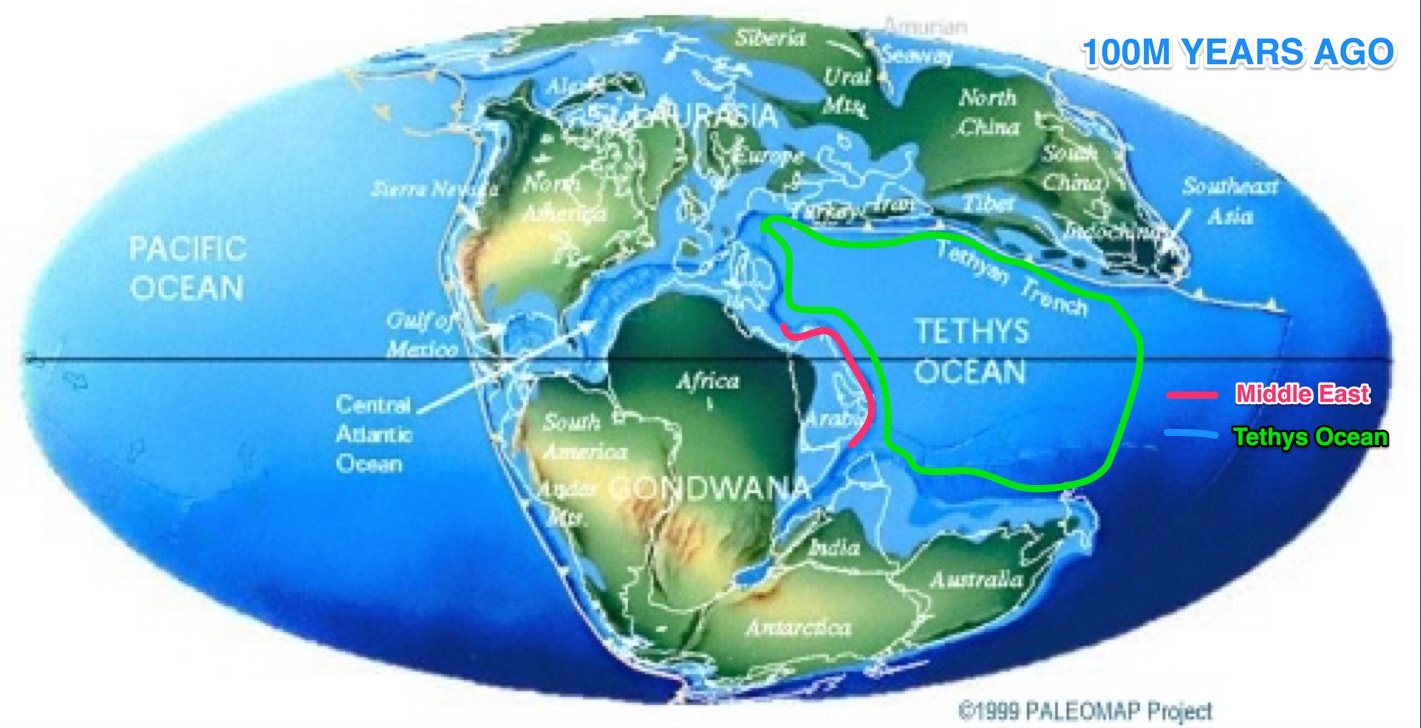Hydrocarbons are from dead organic material – and you need an astonishing set of circumstances to make oil out of these things and preserve them.
First, you’ve got to concentrate them somewhere where they’re not dispersed or oxidized – which means in swamps, marshes, lakes or something like that. (See “Peat Marshes” and “Bog Bodies”.) Then you’ve got to heat them up slowly over a long, long period to cook them up to make oil. And then, when they make oil and start to ‘ferment’, you’ve got to have some way of trapping the liquid and the gas.
All these things, it turns out, happen on the margins of continents. Sediments just get washed in, and all those dead things get buried deeper and deeper and gently get cooked for a long time. So, the circumstances for making oil are very good on the margins of continents. Especially the margins of oceans that aren’t on a plate boundary – because there are no earthquakes there.
Now, what happened in Saudi Arabia is that that happened to be on the margin of a huge ocean which separated Asia from the southern continents. So, a hundred million years ago, Africa, India and Arabia were all a long way further south from where they are now and they’ve all moved north and bashed into Asia.
One of those places is [what is now] Saudi Arabia, Iran and Iraq.
And what’s happened is the margin of that ocean, with the margins of Arabia, and Africa and India, have all just popped up above sea level from the pressure of colliding together.

Millions of years ago, most of the Middle East was covered by what scientists call the Tethys Ocean (aka Tethys Sea). Rivers flowing into the ocean gave rise to trillions of microscopic organisms and other marine plants and animals. The corpses of these organisms on the ocean floor is where oil (and natural gas) comes from. This is why they are called fossil fuels.
Over millions of years, this decomposing organic material became covered by miles of new organic matter and also the sand and salt flowing in from the rivers and streams. Yes, salt flows into the ocean from freshwater rivers and streams. Anyway, these layers became more and more packed as newer layers formed on top of the previous layers. The pressure and heat from these upper layers change the buried organic matter into a sludgy substance of hydrocarbons and other compounds that constitute what we know as crude oil. Theoretically, as long as marine life keeps dying, oil will keep being created
So it’s not that there is more oil in the middle east than anywhere else. There’s loads of oil on the other continental margins – but that’s all underwater. It’s hard and expensive to get out. Whereas in Saudi Arabia, Iran and Iraq it’s popped up nicely above sea level and also in. So it’s actually extremely easy to find, an cheap to take out.
It’s just more that it is conveniently situated than anything else.
(Source: From an interview with James Jackson from the University of Cambridge and other sources on the internet, map from paleomap project)